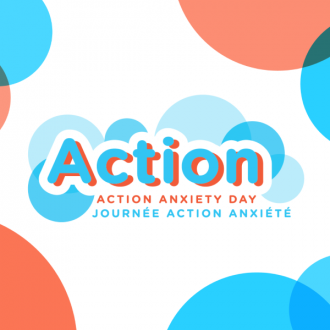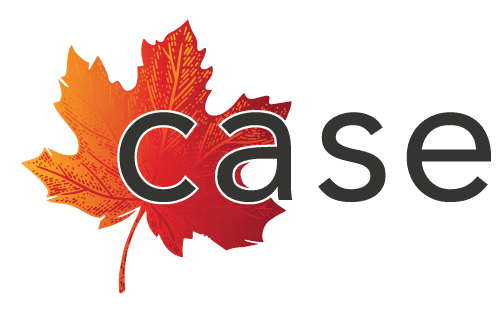Support with Anxiety Helps All Workers
Support with Anxiety Helps All Workers
Have you spoken with people recently who have mentioned they’re tired all the time?
A recent CBC article describes the general state of mind caused by all the local, national, and global stresses that currently surround us: “The Great Exhaustion, which starts with stress directly related to work and piles on wider anxieties about the state of the world — such as climate change, war, political instability and the rising cost of living.”
A survey by ADP Canada released in November 2023 found that seven in ten workers in Canada report feeling stressed because of inflation and the economy. Over half (53%) of workers in Canada report having a negative feeling about work, and nearly one-third (30%) feel tired and overworked.
Almost Two Million Canadians Experience Generalized Anxiety
In 2022, 5.2% of Canadians aged 15 years and older (1) – or 1.7 million people (2) – experienced a generalized anxiety disorder.
Action Anxiety Day – June 10
A national awareness and education day to help people learn about anxiety, reduce stigma, and create awareness of evidence-based resources.

While Statistics Canada data were not available for racialized groups specifically for anxiety disorders, the overall prevalence of mood, anxiety, and substance use disorders was lower among Chinese, Filipino, South Asian, and Black people in Canada, as compared with non-racialized, non-Indigenous people. These differences could be related to socio-cultural differences or stigma influencing willingness to report symptoms of mental illness and substance use.
Various studies have shown that the cumulative effects of racial stress and trauma are associated with symptoms of anxiety and depression in Indigenous people, racialized groups, and 2LGBTQ+ groups. (3)
Chronic Anxiety Can Impact Our Work
Along with making us feel tired, long-term stress can increase mental health challenges, including anxiety. (4) Everyone experiences anxiety at some point in their life. But when anxiety is chronic (keeps occurring), it can cause distress both at home and at work.
Severe anxiety can lead to reduced work performance, increased time spent on disability leave, disruptions in career advancement, and early exit from the labour force. (5)
Like all workers, with the proper support, a person who experiences anxiety can thrive in the workplace.
Severe anxiety can lead to reduced work performance, increased time spent on disability leave, disruptions in career advancement, and early exit from the labour force.
How Anxiety Can Affect Us
Anxiety is a physical response that can be felt in the body. Symptoms can include headaches, chest pain, nausea, dizziness, feeling detached from oneself, shaking, a choking sensation that makes it hard to speak, rapid heart rate, and more.
Sometimes, it’s difficult for a person experiencing anxiety to understand why they’re anxious and to control their body’s automatic response to anxiety.
Common behaviours that can be related to anxiety include:
- Difficulty speaking in a work meeting
- Passing up a promotion for fear of failure
- Being unable to apply for a job or a promotion
- Excessive fear of making mistakes or a desire to be “perfect”
- Declining invitations to socialize
- Avoiding exposure to illness or germs (particularly post COVID)
- Worrying thoughts, such as “My boss will get upset” or “My colleagues think badly of me”
- Expecting the worst to happen
- Becoming house or office bound due to fears or panic attacks
It’s important to remember that these behaviours do not automatically mean that a person has anxiety.

Supporting All Workers through Inclusive Policies
When we help employees who experience anxiety and other mental health challenges, we help all workers to thrive.
Employers can help all workers by:
- Making resources to manage anxiety and other health challenges easily accessible.
- Assisting with prioritizing tasks and delegating as needed.
- Checking in on a regular basis to ensure workloads are manageable.
- Asking at each meeting if anyone has anything to add and allowing time for responses (20 seconds of silence is okay!).
- Having an open-door policy for employees who need to talk.
- Creating a culture where employees feel okay taking time off and having a strong work–life balance – and leading by example.
- Continuing to destigmatize mental health challenges at work.
Free Resources to Manage Anxiety
Anxiety Canada
Offers the following resources:
- My Anxiety Plan (MAP) – online self-paced anxiety management course
- The MindShift CBT app
- Self-help strategies for Generalized Anxiety Disorder
- Self-help strategies for Panic Disorder
The Mental Health Commission of Canada
Offers Quick Tips to Reduce Anxiety that can be downloaded as a pdf document.
Shkaabe Makwa at the Centre for Addiction and Mental Health (CAMH)
Their Workforce Development team has developed an online site with helpful resources for First Nations, Inuit, and Métis communities, including guided meditations, wellness strategies, webinars, printable mental health resources, and more.
References
1. Statistics Canada. “Study: Mental disorders and access to mental health care.”
2. Based on Statistics Canada population numbers. In 2022, there were 32,812,977 Canadians 15 years and over, which was multiplied by 5.2%.
3. Williams, Monnica T. et al. The Traumatizing Impact of Racism in Canadians of Colour. Current Trauma Reports. Published March 2022. Accessed June 4, 2024.
4. Statistics Canada. “Study: Mental disorders and access to mental health care.” The Daily. Released September 22, 2023. Accessed May 28, 2023.
5. Statistics Canada. Trends in the prevalence of depression and anxiety disorders among working-age Canadian adults between 2000 and 2016. Released December 16, 2020. Accessed May 28, 2024.
Also:
CAMH. Anxiety Disorders. Stress. | Anxiety Canada. ABC’s of Anxiety. | Health Canada. Mental Health – Anxiety Disorders.

